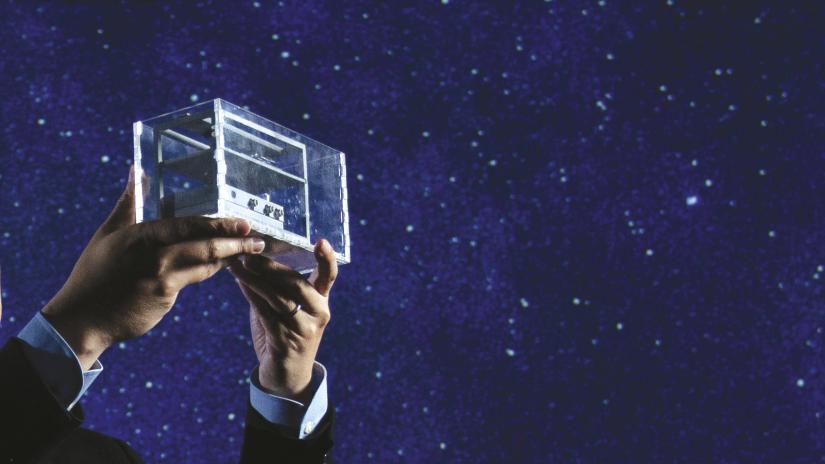
It is known that life in outer space can have various effects on the human body. For example, living in a state of weightlessness for a long time is known to cause bone and muscle weakness, organ function decline, and vision loss. On the other hand, research has shown that cancer progression can be suppressed in a state of zero gravity such as space, so the research team at the University of Sydney Institute of Technology is planning a space station experiment in 2020.
Joshua Choi, a biomedical lecturer at the University of Technology Sydney, has been studying the medical effects of microgravity like space on the human body at the cellular level since 2014. He says that when a friend was diagnosed with cancer a few years ago, he suddenly recalled a conversation with Dr. Stephen Hawking and thought what would happen if the cancer cells were released from gravity.
Cancer is essentially a disease of cells. There are various types, but basically, cancer cells that have become out of control repeatedly multiply and divide to invade or metastasize body tissues, causing fatal symptoms. In breast cancer, for example, cancer cells invade breast tissue, and lung cancer invades lung tissue.
Cancer cells gather several cancer cells to form solid tumors and infiltrate the body tissues, but this suggests that there is a method for cancer cells to grow into tumors by detecting each other in some way. In this regard, biomedical researchers understand that the only way cancer cells detect each other is by mechanical forces, and this system has evolved to work in the presence of gravity. For this reason, the researchers thought that lack of gravity would inhibit cancer progression.
Joshua Choi was involved in a project to develop a treatment for osteoporosis while working at Harvard University. In this project, some of the research was done on the International Space Station, and he believes that cancer treatment as well as other disease research could use the space environment. The research team is already conducting experiments on the effect of microgravity conditions on cancer cells indoors. It made a device with a small centrifuge installed in a tissue box-sized container, and put cancer cells in a centrifuge pod to create a microgravity state.
The research team revealed that 80-90% of cancer cells were incapacitated as a result of placing four types of cancer cells, including ovaries, breasts, nose, and lungs, in microgravity. Incapacitated cancer cells do not gather into other cancer cells. They claim that they were able to neutralize most of the cancer cells and prevent tumor growth without the use of drugs.
In the next stage, starting in early 2020, specially designed experimental modules are sent to the International Space Station to conduct experiments under zero gravity with cooperation from astronauts. The research team monitors the progress of the experiment on the ground based on data transmitted from space during the 7-day experiment.
After the experiment is over, it is returned to the ground, the cancer cells are frozen, and the experimental module is recovered and analyzed in the laboratory. If the results of the International Space Station experiment are consistent with what the research team reproduces in the laboratory, they can expect to develop new treatments that limit the ability of cancer cells to detect each other.
Above all, the technology to be developed does not kill cancer cells to the last, but is expected to be complemented with existing treatments. Combined with drugs or chemotherapy, it can inhibit human cancer cell proliferation and metastasis. Related information can be found here .


















Add comment